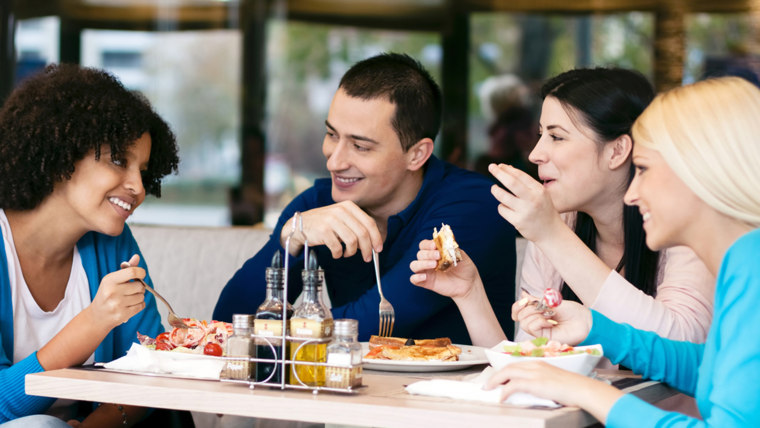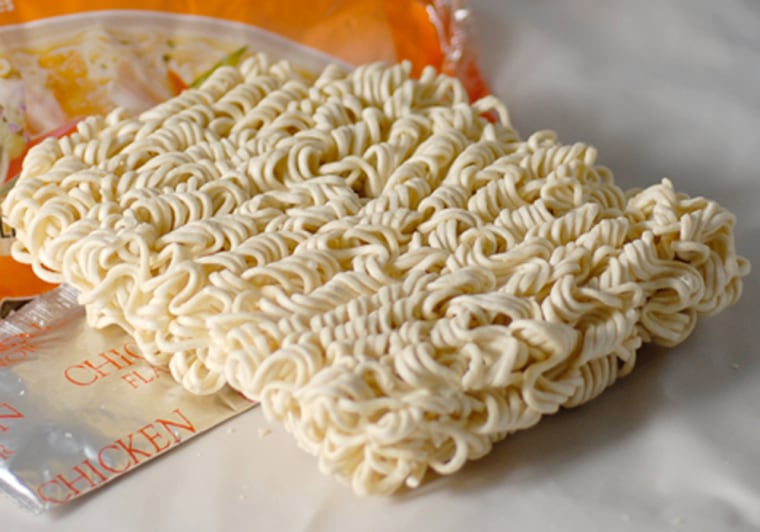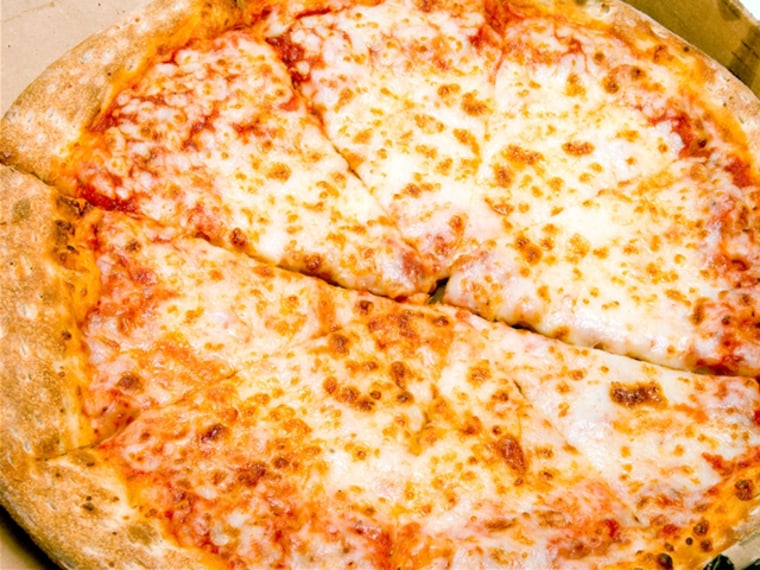Lucky Charms for every meal? A whole pizza at 3 a.m.? Five energy drinks a day? Ramen noodles for breakfast?
Yep, that’s right: the freshman diet. That beginning year of college when you're finally free from the family dinner table to eat whatever you want, whenever you feel like it.
“Freshman year is a time of serious life changes — and that undoubtedly extends to eating and exercising habits,” says Julie Zeilinger, 21, founder of the teenage girl blog the FBomb and author of College 101: A Girl's Guide to Freshman Year and A Little F'd Up: Why Feminism Is Not A Dirty Word.

The good news: the “Freshman 15” is largely a myth.
It's true the average first-year college student puts on weight, but it's usually somewhere between 3 pounds up to about 7 pounds, studies indicate. Guys are actually more likely to gain weight than women in their first year, according to a 2009 Oregon State University study.
So what's wrong with gaining a few pounds? Habits you pick up as a freshman can become ingrained during your college years and beyond. Students who gained weight during college are more at risk to become obese in adulthood, according to research.
Here's how to avoid the common freshman diet traps and maintain a healthy, balanced routine:
Navigating the dining hall maze
“Food services on college campuses are almost like an all-you-can-eat buffet,” says Dan Jones, director and chief psychologist at the Counseling and Psychological Services Center at Appalachian State University in Boone, North Carolina.
Sure, there’s the salad bar. But there’s also the unlimited pizza station and soft-serve ice cream machine. With food service available from early in the morning until late at night, it’s easy to load up on unhealthy foods throughout the day.

But if you can't stomach the cafeteria menu, be wary of stocking up food in your dorm.
“I saw young women eat peanut butter sandwiches for every meal or live off of power bars because they disliked the hot meals served in the dining hall,” Zeilinger told TODAY.
Keep moving
With trying to balance school work, making friends and adjusting to campus life, you may not get much more exercise than walking to and from classes. Students who were once high school athletes may not realize how much physical activity they are now lacking.
“A lot of students do gain weight and it surprises them sometimes how quickly and easily it can happen,” says Jones. “There’s a lack of movement and consuming calories is a lot easier than it’s ever been before.”
Making time to exercise will not only keep you physically in shape but also mentally alert. And most college campuses offer fitness facilities and exercise classes to encourage you to stay active.
Social calories
A huge part of college is getting to know people and building relationships. That means loading up on "social calories" from eating, drinking and partying.
The flip side is “drunkorexia," when students restrict their food calories during the day so they can party at night. It's a growing problem on college campuses, Dr. Susan Tweeten, psychological resident at the Counseling and Psychological Services at the University of Central Florida, told TODAY. Research shows that drunkorexia can prompt eating disorders or alcoholism and lead to an increased risk for alcohol-related problems in the long term, such as liver disease, diabetes and dementia.
Eating (or drinking) your feelings
When you’re feeling stressed or upset, it’s common to turn to comfort food to make yourself feel better. Comfort food for the college newbie is usually potato chips, pizza or ice cream. Hello, fat and calories!
“Many freshmen navigate the dining hall from an emotional perspective rather than from one of hunger or health,” Zeilinger told TODAY.
Yet while some freshmen rely on greasy, sugary treats to deal with anxiety, others feel like they can manage stress by eating fewer calories, Jones says. “They’re restricting their food because they feel out of control because they’re in a new environment. Restricting food … can feel like you’re gaining control over at least one aspect of your life.”
In either case, if you feel like your stress or eating habits are becoming a problem, there are resources on campus, such as a counseling center or health services, that will help you connect with professionals who can support you.
“If they’re in a place where they’re eating really differently than they have in the past or all they can think about is how they’re eating or what their body looks like, those are really warning signs," Tweeten says.
It’s a balancing act
Between the all-you-can-eat dorm food, busy scheduling, tough classes, new social circles and sleep- when-you’re-dead mentality, your freshman year may feel like a whirlwind.
“More than anything, it’s … nurturing your whole self, which means you have to attend to the basics of what your body needs,” Tweeten told TODAY.
And by sophomore year, it’s common for students to have adjusted to campus life and return to a more balanced lifestyle.
